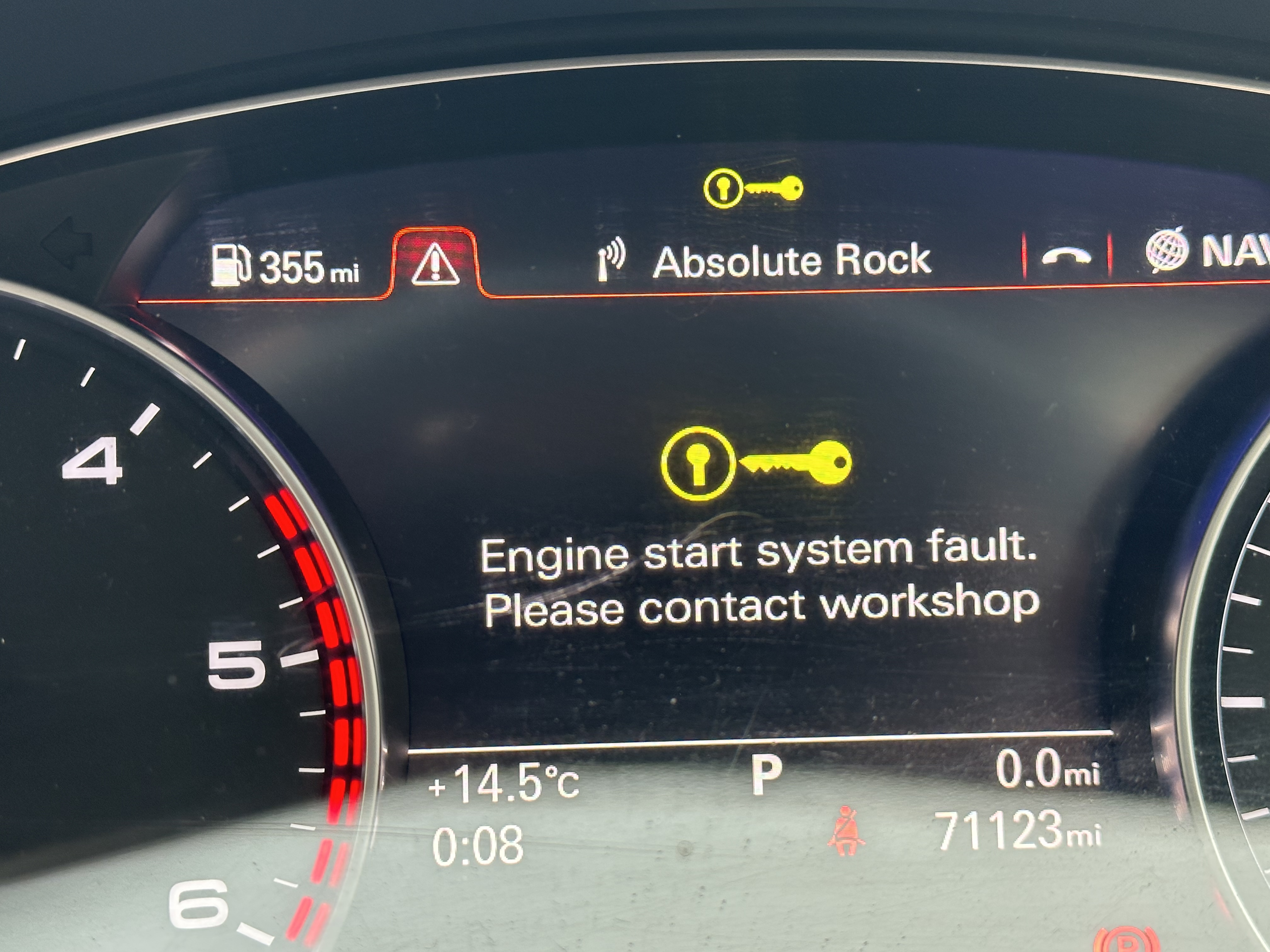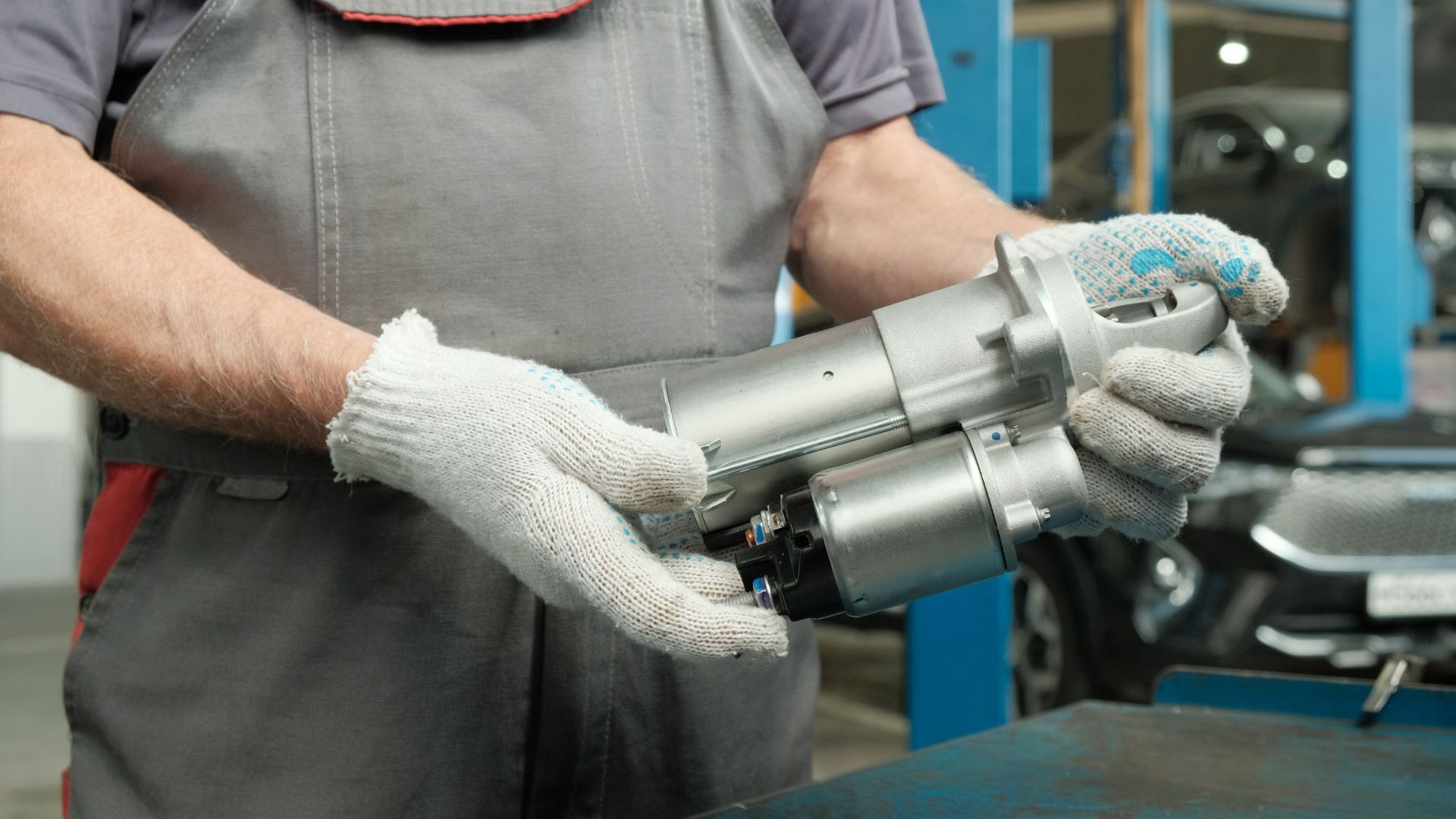Are you ready to hit the road, but your Ford F-150 is giving you a headache with its starting system fault message? Don’t worry, we’ve got your back! In this blog post, we’ll delve into the potential causes of a starting system fault in your beloved truck. Whether it’s a faulty ignition switch or a drained battery, we’ll explore all the possible culprits that might be preventing your F-150 from roaring to life. So buckle up and join us on this troubleshooting journey as we unravel the mysteries behind your Ford F-150’s starting system fault message. Let’s get started!
Why Does my Ford f150 Say Starting System Fault?
You’re all set to embark on your next adventure, but as you turn the key in your Ford F-150, a dreaded message appears – “Starting System Fault.” Before you start panicking and wondering if it’s time to bid farewell to your trusty truck, let’s explore why this message might be popping up.
One potential reason for the starting system fault is a faulty ignition switch. Over time, the contacts inside the switch can wear out or become corroded, hindering its ability to transmit electrical current properly. This can lead to inconsistent starting or complete failure of the system.
Another culprit could be a weak battery. If your battery is old or has been drained due to leaving lights on or other electrical issues, it may not have enough power to engage the starter motor effectively.
Additionally, a malfunctioning starter relay could trigger the starting system fault warning. The relay acts as a bridge between the battery and starter motor, allowing electricity flow when you turn the key. If it becomes damaged or fails altogether, it can disrupt this crucial connection.
Wiring issues can also cause problems with your F-150’s starting system. Frayed wires, loose connections, or damaged harnesses can prevent proper transmission of electrical signals and result in a starting system fault error message.
Now that we’ve explored some possible causes behind your Ford F-150’s starting system fault message let’s move on to finding solutions! Stay tuned for our next section where we discuss what steps you should take when faced with this issue.
What Causes Starting System Failure?
The starting system in your Ford F 150 is a complex network of components that work together to initiate the engine’s combustion process. When this system fails, it can be frustrating and leave you stranded. There are several potential causes for starting system failure, each requiring its own investigation.
One possible culprit is a faulty starter motor. Over time, the internal components of the starter motor can wear out or become damaged, preventing it from effectively turning over the engine. A worn-out solenoid could also contribute to starting system failure as it may not be able to engage the starter properly.
Another potential cause is a weak or dead battery. If your battery doesn’t have enough charge or has reached the end of its lifespan, it may not provide sufficient power to start the vehicle. Additionally, corroded or loose battery terminals can disrupt electrical connections and impede proper functioning.
Faulty ignition switch and wiring issues are other culprits that can lead to starting system problems. Damaged wires or connectors can prevent electricity from flowing efficiently through the circuits, resulting in a failed start-up attempt.
What can cause my Ford F 150 to not start

One of the most frustrating situations a Ford F-150 owner can encounter is when their vehicle refuses to start. There are several potential causes for this starting system failure, and it’s important to understand them in order to properly address the issue.
One possible culprit could be a dead battery. If your F-150 has been sitting idle for an extended period of time or if you’ve accidentally left the lights on, it may drain the battery and prevent the engine from starting. In this case, jump-starting the vehicle or replacing the battery entirely might be necessary.
Another common cause is a faulty starter motor. Over time, these components can wear out or become damaged, making it difficult for them to engage with the flywheel and turn over the engine. A clicking sound when you turn the key could indicate a problem with your starter motor.
Additionally, issues with fuel delivery can also prevent your F-150 from starting. This could include a clogged fuel filter or a malfunctioning fuel pump that fails to supply enough gasoline to ignite in combustion.
Furthermore, problems with ignition components such as spark plugs or ignition coils can interfere with proper engine startup. Worn-out spark plugs may not provide sufficient sparks required for ignition while faulty ignition coils may fail to transmit electrical currents effectively.
There are numerous potential causes for why your Ford F-150 won’t start – ranging from simple issues like a dead battery to more complex problems involving mechanical failures or electronic glitches. It’s best to consult with an experienced mechanic who specializes in Ford vehicles to accurately diagnose and resolve any starting system faults you encounter.
What to Do if Your f150 Says Starting System Fault?

If your Ford F-150 displays a “Starting System Fault” message, it can be frustrating and concerning. However, there are several steps you can take to troubleshoot the issue and get your truck back on the road.
Check the battery connections. Loose or corroded terminals can prevent proper electrical flow and cause starting system faults. Ensure that the battery cables are securely attached and free from any buildup.
Next, inspect the ignition switch. A faulty ignition switch may not send the necessary signals to start the engine. If you suspect this could be the problem, consult a professional mechanic for further diagnosis.
Another potential culprit is a faulty starter motor or solenoid. These components play an essential role in initiating engine rotation. If they malfunction, it can result in starting system faults. Have them inspected by an experienced technician who will determine if repairs or replacements are necessary.
Additionally, consider checking other related components such as relays or fuses that might affect starting system functionality.
If all else fails, it’s best to reach out to a qualified automotive technician who specializes in Ford vehicles for assistance with diagnosing and resolving more complex issues causing your F-150’s starting system fault message.
Remember that regular maintenance and inspections are crucial for preventing such problems from occurring in the first place! Stay proactive with vehicle care to keep your Ford F-150 running smoothly for years to come.
FAQs
Q: Why does my Ford F-150 say “Starting System Fault”?
A: When your Ford F-150 displays the message “Starting System Fault,” it means there is an issue with the vehicle’s starting system. This warning can appear for various reasons, and it’s important to address the problem promptly.
Q: What causes starting system failure?
A: Starting system failure in a Ford F-150 can be caused by several factors. Common culprits include a faulty ignition switch, a dead battery, a malfunctioning starter motor or solenoid, corroded electrical connections, or issues with the fuel delivery system.
Q: What can cause my Ford F-150 to not start?
A: There are numerous reasons why your Ford F-150 may fail to start. Apart from starting system faults mentioned earlier, other possibilities include fuel pump problems, clogged fuel filters, ignition coil issues, damaged spark plugs or wires, and even computer module malfunctions.
Q: What should I do if my f150 says “Starting System Fault”?
A: If you encounter the “Starting System Fault” warning on your Ford F-150’s display screen, it is best to have your vehicle inspected by a qualified mechanic as soon as possible. They will diagnose the specific cause of the fault and recommend necessary repairs or replacements.
Summary
If you are experiencing a “Starting System Fault” message on your Ford F-150, it can be frustrating and worrisome. However, understanding the potential causes can help you diagnose and fix the issue more effectively.
The starting system failure can occur due to various reasons such as a weak battery or faulty starter motor. Other possible culprits include issues with the ignition switch, wiring problems, or even a malfunctioning powertrain control module (PCM).
To troubleshoot the problem, start by checking your battery’s condition and voltage levels. If necessary, have it tested or replaced. Next, inspect the connections to ensure they are clean and secure. Additionally, examine the wiring for any signs of damage or corrosion.
If those steps don’t solve the issue, consider having a professional mechanic diagnose and repair your Ford F-150. They have specialized tools and expertise to pinpoint complex electrical problems accurately.
Remember that regular maintenance is crucial in preventing starting system faults from occurring in the first place. Follow your vehicle’s recommended service intervals for battery checks and overall inspections.
By addressing any starting system fault promptly and following proper maintenance practices, you can keep your Ford F-150 running smoothly for years to come.
If you have further questions or need assistance with troubleshooting an ongoing issue with your Ford F-150’s starting system fault message,
Feel free to reach out!
![Ford F 150 Starting System Fault [Potential Causes Explained]](https://f150insight.com/wp-content/uploads/2024/01/photo-1531986627054-7f294d095acd-768x512.jpg)